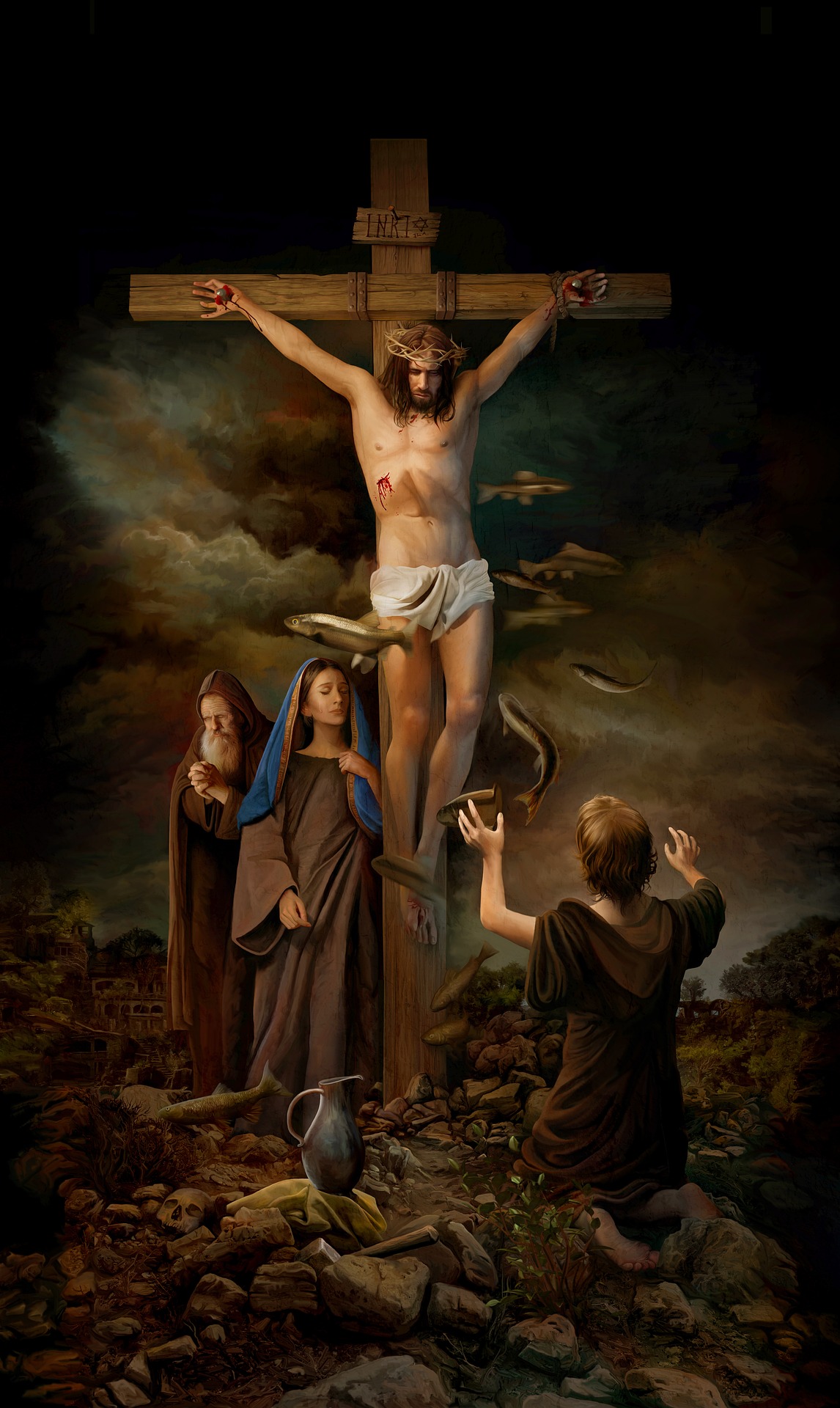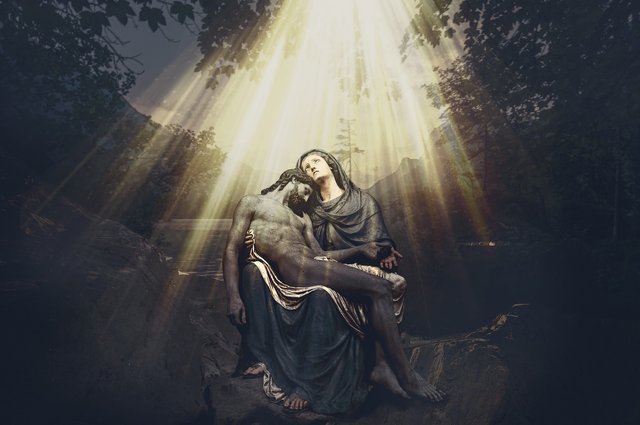THE CHRISTIAN OBSERVANCE OF SUNDAY
Hello lovely people of #steemchurch peace be with you all. A special greetings to the knight of the light legendary @sirknight, wherever you are I greet you. Today is my pleasure to share with you a debate topic why christians worship on sunday.
Why Christians Observe Sunday
Although no early Christian document explicitly identifies the origin of Sunday worship, in the post-resurrection appearances of Jesus the Gospel writers considered it important to mention that Christ's post resurrection appearances took place on the first day of the week. In (John.20:18-20), we have the first recorded assembly of the disciples on the afternoon of resurrection Sunday.

From (Mathew 28:1-10), we observe that it was at dawn on the first day of the week that an angel said to Mary Magdalene and the other woman that the Lord has risen, Jesus showed Himself to the women that same day and they "Clasped his feet and worshipped him". The Lord completed His redemptive work - His victory over death, hell and the grave on the first day of the week. Again, it was on a Sunday that Jesus explained to two of His disciples that "the Christ have suffer..... and then enter his glory"
It was on the same evening that Jesus for the first time declared the glad tidings of peace through His broken body and she'd blood. "Peace be unto you" and he showed them His hands meeting on Sundays in honor of the Lord's resurrection. The Sunday meeting, just like any other meeting, is primarily to honour the Risen Lord.
Christians also believe that it was on a Sunday that the church was born and from the early days the disciples had religiously kept the day in remembrance of the risen Lord. In (Acts 1:4-8), the disciples were commanded to wait in Jerusalem for the promise of the Father. The Holy Ghost did not come until the day of Pentecost, which was the first day of the week (Acts 2:1-4). After Christ's ascension, the first sermon was preached on a Sunday and the first conversions and baptism of about 3,000 persons took place on the first day of the week (Acts 2:41).
We also notice that Paul met with believers in Troas to worship and celebrate communion on the first day of the week (Acts 20:7). Their meeting had two important activities of a church, namely the breaking of bread (communion) and a message (preaching) Again in his letter to the church in Corinth. Paul instructed them to give an offering when they meet the first day of every week.
(1 Corinthians 16:1-2)
Evidence From The Early Church Fathers
By the second century, Sunday worship was the norm, and fewer conflicts over the seventh-day Sabbath are evident. Some early Church Fathers also associated Sunday worship with the resurrection of Christ and referred to it as the Lord's Day. In the Didache (a second century Christian document) the injunction is given: "On the Lord's Day come together and break bread. And give thanks (offer the Eucharist), after confessing your sins that your sacrifice may be pure". St. Ignatius, (ca. 35-107 AD), speaks of Christians as "*no longer observing the Sabbath, but living in the observance of the Lord's Day, on which also our life rose again *"

In all these evidences the Christians has one main reason for the Risen Lord. From the traditions of the church, christians started meeting on the first day of the week long before Emperor Constantine, proclaimed Emperor in 306 AD, made Sunday a public holiday. We need to correct the impression that Constantine instituted Sunday as a day of worship for Christians. Justin Martyr, (ca. 100-165 AD) gives evidence of the observance of Sunday in the Early church. On the day called Sunday, all who live in cities or in the country gather together in one place, and the memoirs of the apostles or the writings of the prophets are read..... Sunday is the day on which we all hold our common assembly, because it is the first day on which GOD, having wrought a change in the same day rose from the dead. Justin is clear: It was the widespread practice of Christians to observe Sunday as a day of joy and celebration.
Many Christians were already honoring Sunday near the beginning of the second century. Evidence is very strong..... that many if not most Christians had given up the Sabbath as early as A.D 130. Just as Sunday observance came into practice, the observance of the Sabbath by Gentile Christians went out of practice in the second century. But this was not a replacement for the Sabbath. Sunday was observed as a day for worship, not as a Sabbath for rest on which to refrain from work. Sunday was not at first celebrated as a "Sabbath". It was not observed in obedience to the fourth commandment....... Sunday was not generally regarded by Christians as a day of rest but as a day of joy and celebration.
The Observation Of The Day
The fact that the early Christians met together and offered public worship on Sunday necessitated a certain eat from work on that day. Tertullian, (ca. 160-225 AD) expressly mentions the Sunday rest in early Church: "We however (just as tradition has taught us), on the day of the Lord's Resurrection ought to guard not only against kneeling, but every posture and office of solicitude, (petitioning) deferring even our business lest we give any place to the devil".
.jpg)
The tradition of keeping the rest on Sunday continued in the Church in various forms. In order to be true to the New Testament tradition, John Calvin (1509-1564) during the Reformation, felt it necessary to discard many of the liturgical practices and called for a total rest on the Lord's Day, thus maintaining the primacy of Sunday. For many years after the Reformation, nearly all protestant denominations used set liturgical forms for Sunday worship.


We found you post valuable to the community @sc-g.
Thanks for your contribution @bigssam
Upvoted & Resteemed
OD2
Great message. Your apology is clear. The problem the seventh day Adventist have with this is that Sunday worshippers replace the lords day with the Sabbath. That's to say that the new Sabbath is sunday. Which is not true. The Sabbath continues to be Saturday but we the Sunday worshippers worship on the Lords day. The New Testament does not affirm the observation of the Sabbath. The Sabbath was q shadow of the Lords day.
I prefer Monday to Friday, but to each his own.
God is no so much concern about days in which we worship Him for He even says in His word that man was not made because of Sabath but the Sabath for man. This means days are not more important to God than man. By the Holy Spirit each one of us should be decide on which day he wants to worship God as Paul said:
One man esteems one day above another: another esteems every day alike. Let every man be fully persuaded in his own mind. He that regards the day, regards it unto the Lord; and he that regards not the day, to the Lord he does not regard it. He that eats, eats to the Lord, for he gives God thanks; and he that eats not, to the Lord he eats not, and gives God thanks.Romans 14:5-6
Great post thanks for sharing with us. God bless you.
God bless you for sharing my post
Your emphasis on Sunday worship is on point and well established. In fact, well done. Resteemed
thanks for sharing with us. God bless you.
Sunday is a Special day.. Called the Sabbath Day..
And all Christians should ensure to keep it Holy.